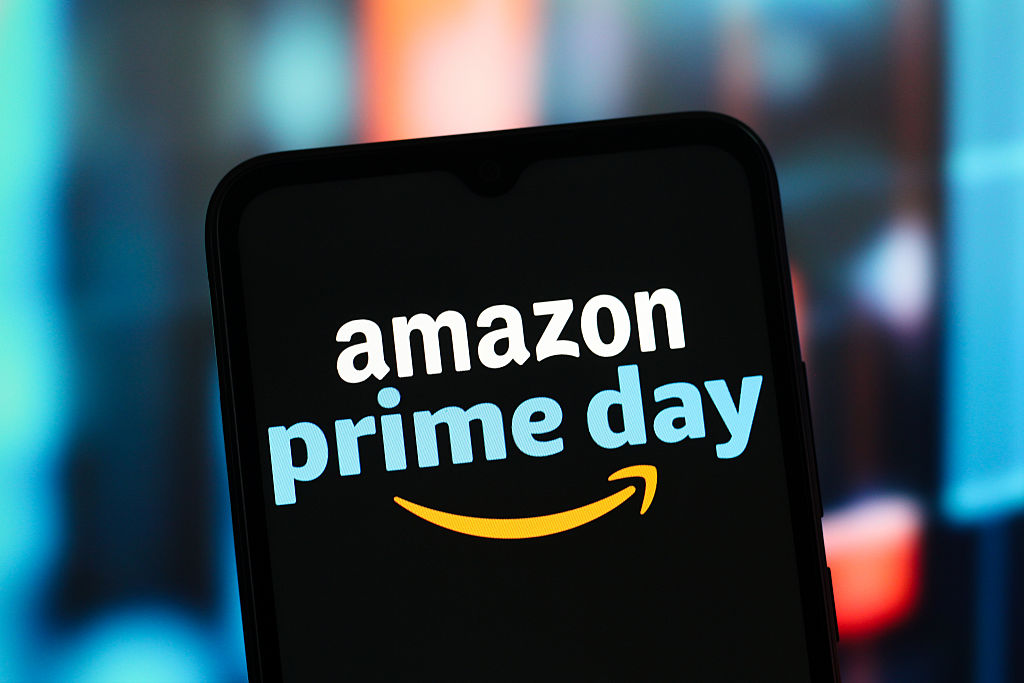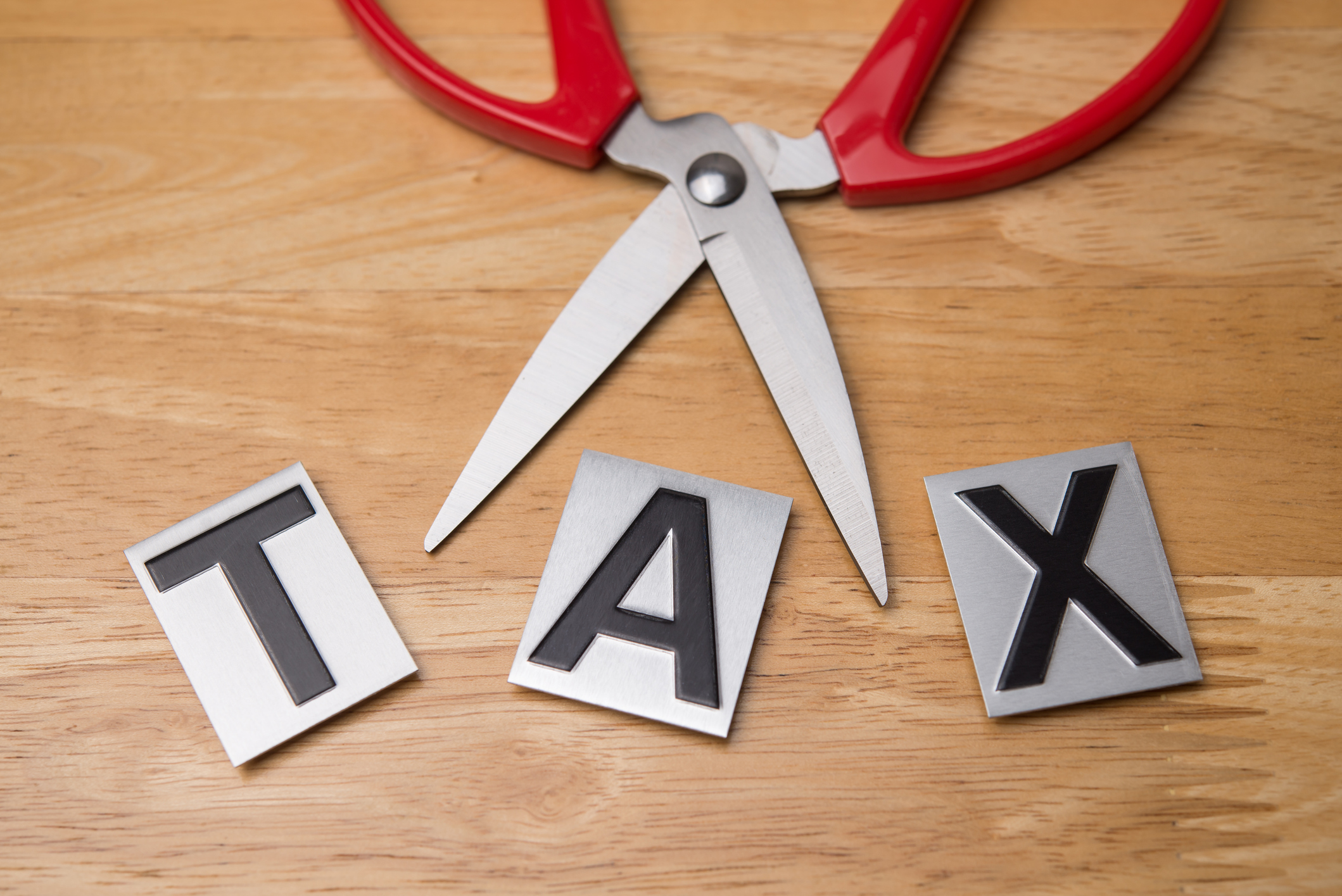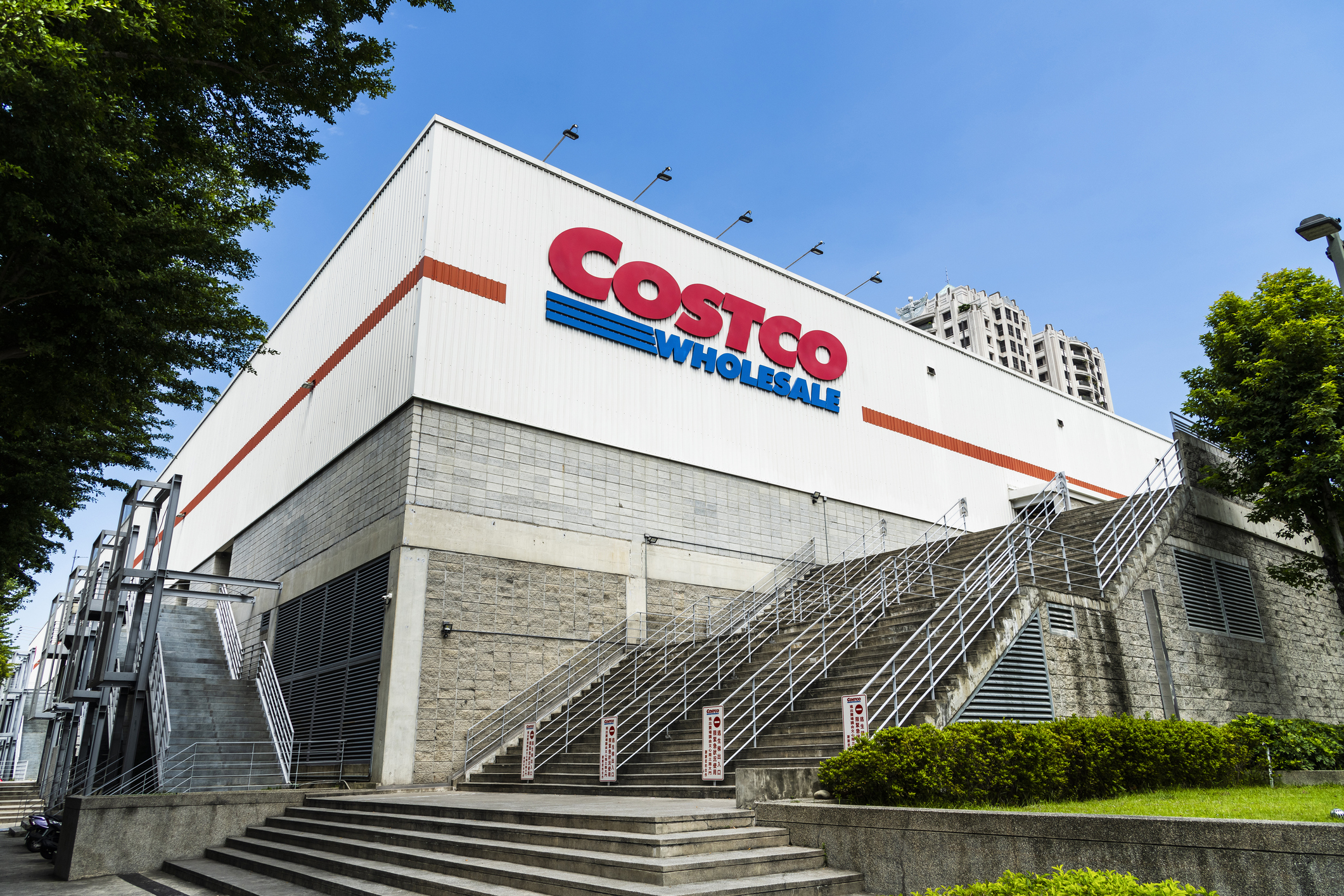Amazon Prime Day Deals? Sales Tax and Tariffs Can Increase Your Total Price
Amazon Prime Day 2025 can offer some opportunities to save, but this year, taxes and tariffs matter.


Profit and prosper with the best of Kiplinger's advice on investing, taxes, retirement, personal finance and much more. Delivered daily. Enter your email in the box and click Sign Me Up.
You are now subscribed
Your newsletter sign-up was successful
Want to add more newsletters?

Delivered daily
Kiplinger Today
Profit and prosper with the best of Kiplinger's advice on investing, taxes, retirement, personal finance and much more delivered daily. Smart money moves start here.

Sent five days a week
Kiplinger A Step Ahead
Get practical help to make better financial decisions in your everyday life, from spending to savings on top deals.

Delivered daily
Kiplinger Closing Bell
Get today's biggest financial and investing headlines delivered to your inbox every day the U.S. stock market is open.

Sent twice a week
Kiplinger Adviser Intel
Financial pros across the country share best practices and fresh tactics to preserve and grow your wealth.

Delivered weekly
Kiplinger Tax Tips
Trim your federal and state tax bills with practical tax-planning and tax-cutting strategies.

Sent twice a week
Kiplinger Retirement Tips
Your twice-a-week guide to planning and enjoying a financially secure and richly rewarding retirement

Sent bimonthly.
Kiplinger Adviser Angle
Insights for advisers, wealth managers and other financial professionals.

Sent twice a week
Kiplinger Investing Weekly
Your twice-a-week roundup of promising stocks, funds, companies and industries you should consider, ones you should avoid, and why.

Sent weekly for six weeks
Kiplinger Invest for Retirement
Your step-by-step six-part series on how to invest for retirement, from devising a successful strategy to exactly which investments to choose.
Amazon’s Prime Day promises big savings, but your final bill could be higher than anticipated thanks to sales taxes that vary by state, and Trump-imposed tariffs that are pushing up prices on many imported products.
Here’s what you need to know before you shop and to avoid tax surprises at checkout this year.
Prime Day 2025 deals
This year’s Prime Day is Amazon’s longest ever, running from Tuesday, July 8, through Friday, July 11, 2025. That’s double the usual length.
From just $107.88 $24.99 for Kiplinger Personal Finance
Become a smarter, better informed investor. Subscribe from just $107.88 $24.99, plus get up to 4 Special Issues

Sign up for Kiplinger’s Free Newsletters
Profit and prosper with the best of expert advice on investing, taxes, retirement, personal finance and more - straight to your e-mail.
Profit and prosper with the best of expert advice - straight to your e-mail.
New offers can reportedly drop as often as every five minutes during peak periods, and shoppers can expect discounts on Amazon devices, tech gadgets, home goods, apparel, and more.
Amazon is also offering “Today’s Big Deals,” limited-time themed offers on top brands like Samsung, Kiehl’s, and Levi’s, with millions of items across more than 35 categories marked down for Prime members.
According to an Amazon release: “Last year’s event saw record-breaking sales and more items sold during the two-day event than any previous Prime Day event. Independent sellers — most of which are small and medium-sized businesses — who make up more than 60% of sales in Amazon’s store and help make Amazon’s wide selection possible, sold more than 200 million items during the 2024 Prime Day event.”
Some shoppers see it as Black Friday in July, with deep price cuts on electronics, home essentials, and back-to-school supplies.
How sales tax affects your Prime Day deals
While those headline prices are tempting, high sales tax can quietly add more to your final bill.
Since the U.S. Supreme Court’s 2018 South Dakota v. Wayfair decision, nearly every state now requires Amazon to collect sales tax at checkout. That’s regardless of whether Amazon has a physical presence there.
That means your local sales tax rate — ranging from under 5% in some states to close to 10% or more in parts of Alabama and Louisiana — applies to many Prime Day purchases.
- For example, if you grab a $500 laptop online and live in a place with a 9.5% sales tax, you could pay an extra $47.50 at checkout.
- The Tax Foundation reports the average combined state and local sales tax rate in the U.S. is about 7.5% as of 2025. But your actual rate depends on where you live.
- Shoppers in states with no sales tax, like Delaware, Montana, New Hampshire, and Oregon, are exempt from sales tax; however, most others should expect to pay.
This is a detail that can turn a “can’t-miss” deal into a price that’s only average once the tax is tacked on. So, before you check out, factor in your local rate to avoid sticker shock.
How tariffs can quietly raise Prime Day prices
Tariffs are another issue surrounding this year’s Prime Day deals.
Tariffs are taxes that governments impose on goods and services imported from another country. They can be a source of revenue, but can also be used as a barrier to regulate international trade and safeguard domestic industries.
Over the past months, President Donald Trump has imposed tariffs affecting a wide range of consumer products.
The on-and-off timing and amounts of these levies have meant that products arriving at U.S. ports after July 9 could have been subject to higher import taxes, especially in categories like electronics, appliances, and home goods.
- Recent reporting from the National Retail Federation found that nearly 60% of U.S. retailers expect to raise prices on imported goods if tariffs remain in place or increase.
- Some third-party sellers on Amazon have reportedly responded by limiting the number of Prime Day deals or shifting their supply chains to other countries to avoid the steepest tariffs.
- For many products, however, higher import costs are unavoidable, and those costs are often passed directly to consumers.
For more information, see What's Happening With Trump Tariffs? and How Tariffs Work and What They Mean for You in 2025.
Amazon hasn’t issued a broad public statement on how tariffs may or may not affect Prime Day. Still, some analysts have suggested that when it comes to tariff impacts, the best deals are likely to be on inventory already in U.S. warehouses.
Shoppers looking for big-ticket items, especially electronics, could see higher prices than expected.
Still, web, product, and mobile analytics company Adobe Analytics has noted that “U.S. online sales jumped 9.9% year over year to $7.9 billion on Tuesday.”
However, some reports suggest that those first-day sales were lower than last year's Prime Day start, perhaps due to the additional days to shop for deals this year.
Prime Day 2025 plus Target, Walmart Deals and Best Buy: Avoid surprises
How can you ensure you’re actually getting a good deal this Prime Day? Start by checking your local sales tax rate and consider using price-tracking tools to compare current deals with historical prices.
Not a Prime Day fan? Other major retailers are offering their own sales in July.
- For instance, Target is running "Target Circle Week," featuring significant markdowns on home goods, electronics, and more.
- Simultaneously, Walmart is holding its "Walmart Deals" event, offering deep discounts on a wide variety of products.
- Best Buy is also competing with a major sale focused on electronics, with price cuts on laptops, TVs, and other tech gadgets.
And remember, not every Prime Day or similar offer is a must-buy. With inflation and global supply chain issues still affecting the retail sector, it’s good to read any “fine print “and avoid letting countdown timers pressure you into impulse purchases.
Read More
Profit and prosper with the best of Kiplinger's advice on investing, taxes, retirement, personal finance and much more. Delivered daily. Enter your email in the box and click Sign Me Up.

Kelley R. Taylor is the senior tax editor at Kiplinger.com, where she breaks down federal and state tax rules and news to help readers navigate their finances with confidence. A corporate attorney and business journalist with more than 20 years of experience, Kelley has helped taxpayers make sense of shifting U.S. tax law and policy from the Affordable Care Act (ACA) and the Tax Cuts and Jobs Act (TCJA), to SECURE 2.0, the Inflation Reduction Act, and most recently, the 2025 “Big, Beautiful Bill.” She has covered issues ranging from partnerships, carried interest, compensation and benefits, and tax‑exempt organizations to RMDs, capital gains taxes, and energy tax credits. Her award‑winning work has been featured in numerous national and specialty publications.
-
 Nasdaq Leads a Rocky Risk-On Rally: Stock Market Today
Nasdaq Leads a Rocky Risk-On Rally: Stock Market TodayAnother worrying bout of late-session weakness couldn't take down the main equity indexes on Wednesday.
-
 Quiz: Do You Know How to Avoid the "Medigap Trap?"
Quiz: Do You Know How to Avoid the "Medigap Trap?"Quiz Test your basic knowledge of the "Medigap Trap" in our quick quiz.
-
 5 Top Tax-Efficient Mutual Funds for Smarter Investing
5 Top Tax-Efficient Mutual Funds for Smarter InvestingMutual funds are many things, but "tax-friendly" usually isn't one of them. These are the exceptions.
-
 In Arkansas and Illinois, Groceries Just Got Cheaper, But Not By Much
In Arkansas and Illinois, Groceries Just Got Cheaper, But Not By MuchFood Prices Arkansas and Illinois are the most recent states to repeal sales tax on groceries. Will it really help shoppers with their food bills?
-
 Holiday Tax Scams 2025: 'Tis the Season to be Wary
Holiday Tax Scams 2025: 'Tis the Season to be WaryTax Scams Navigating tax tricks of the holiday season may be daunting, but don't let that destroy your festive spirit
-
 Trump's Plan to Eliminate Income Tax: 7 Things to Know Now
Trump's Plan to Eliminate Income Tax: 7 Things to Know NowTax Policy The potential consequences of eliminating taxes in favor of Trump tariffs could impact everything from inflation to Social Security and might give some U.S. taxpayers pause.
-
 Are You Middle-Class? Here's the Most Tax-Friendly State for Your Family
Are You Middle-Class? Here's the Most Tax-Friendly State for Your FamilyTax Tips We found the state with no income tax, low property tax bills and exemptions on groceries and medicine.
-
 Costco Sues Over Trump Tariffs: What Could That Mean for Prices in 2026?
Costco Sues Over Trump Tariffs: What Could That Mean for Prices in 2026?Tariffs The retailer is making headlines not just for its famous hot dog and gold bars but for suing the Trump administration over tariffs.
-
 Are New Trump $2,000 Stimulus Payments Coming in 2026? What to Know Now
Are New Trump $2,000 Stimulus Payments Coming in 2026? What to Know NowTax Policy A promise of $2,000 tariff dividend checks is raising questions and fueling confusion.
-
 Another IRS 1099-K Threshold Rule Change to Know for Tax Season
Another IRS 1099-K Threshold Rule Change to Know for Tax SeasonTax Law After years of uncertainty and changing requirements, the 1099-K reporting rules are now set, and the thresholds have changed since last year.
-
 IRS 1099-K Threshold for 2025 Taxes Just Changed: What to Know Now
IRS 1099-K Threshold for 2025 Taxes Just Changed: What to Know NowTax Law After years of uncertainty and changing requirements, the 1099-K reporting rules for 2025 are now set, and the thresholds have changed since last year.